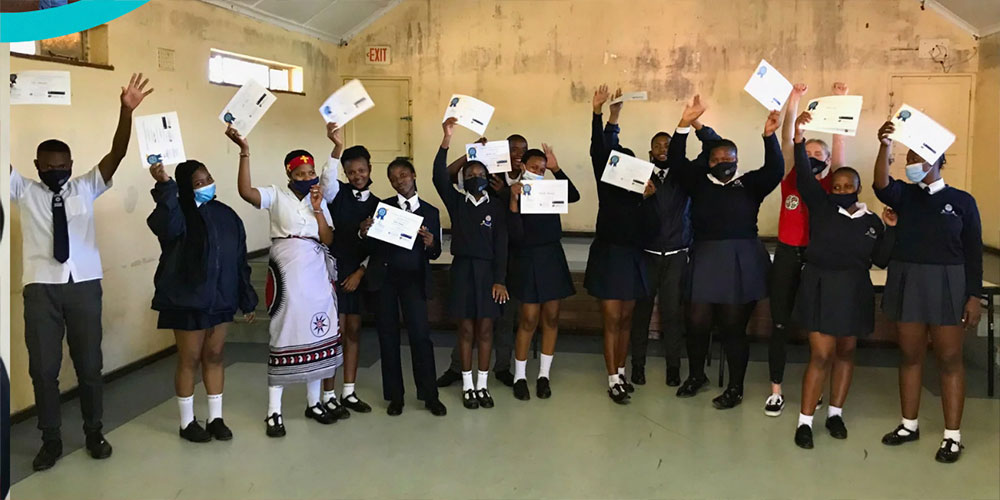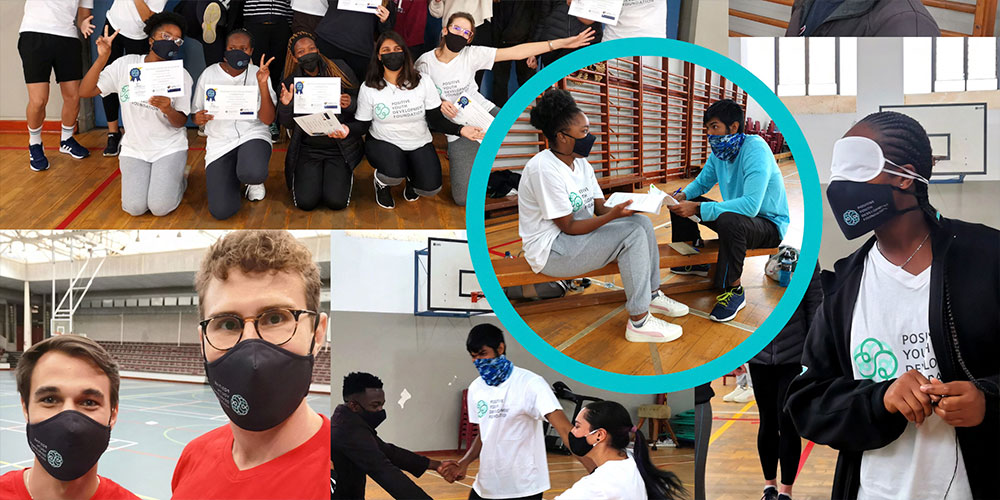Update from the APS intercultural grant winners
Each year, the APS Grant for Intercultural and/or International Projects supports innovative social impact-based projects with an intercultural and/or international focus. It helps fund successful projects that maintain links between the APS, members and psychology, alongside psychologists and community groups in developing countries or under-resourced communities, and in countries where psychology is an emerging discipline. In 2020 the grant was awarded to Associate Professor Stephanie Hanrahan and Daniel Page for their project, Implementation of LifeMatters: A positive youth development program in South Africa.

The project
Funding from the APS Grant for Intercultural and/or International Projects enabled the Positive Youth Development Foundation (PYDF) to bring the LifeMatters program to underserved communities in the Western Cape Province of South Africa. LifeMatters is a 10-session sport psychology intervention program involving psychological skills and mental skills taught through physical activity, worksheets and group discussions. LifeMatters is largely based on cognitive behavioural theory, focused on enhancing self-regulatory skills and improving psychological wellbeing. The PYDF was invited by the relevant stakeholders (lecturers and headmasters) to train students from a local university and youths from a nearby low-resource school in the LifeMatters program.
The university students greatly appreciated the LifeMatters program and its content, reporting benefits related to personal and professional development. Twenty-four university students participated in the 10-session program. Although sessions were considered to be fast-paced and jam-packed with information, the skills learned through participation were deemed invaluable. Breathing exercises, effective goal-setting and positive self-talk resonated with participants as valuable skills for youths across socio-economic backgrounds and cultures. Stress management through the use of progressive muscle relaxation, breathing techniques and negative thought stopping were highlighted as having contributed to improved emotional regulation. The mode of content delivery (through games, discussions and activities) was positively received and was expected to produce effective outcomes upon implementation with other youths as well.

School experience
Thirty-three youths from a low-resource school participated in two 10-session programs. Participants not only thoroughly enjoyed participating in the program activities but made measurable improvements with regards to both inter- and intrapersonal skills. Self-esteem and confidence improved, as well as public speaking and the ability to work in a team. The analysis of both quantitative and qualitative data also allowed for refinement of implementation strategies and greater contextualisation of program activities that may further the positive outcomes of future implementations.
Due to the COVID-19 delta variant within South African communities, the PYDF strictly abided by government-mandated safety protocols. The health and safety of all participants and facilitators was a top priority. Implementation within the underserved community proved more challenging due to lockdown restrictions disrupting the school’s schedule and functioning. Fluctuating school attendance, restrictions around gatherings, and ill-health meant a reduction in beneficiaries reached. While COVID-19 disrupted the usual LifeMatters implementation style, the overall evaluations and positive outcomes provide evidence that the intervention was successful and impactful.
Customising the program
Through our implementation, the PYDF found that providing food to participants from the low-resource community was a non-negotiable requirement. Translation of the program manual, written handouts and surveys improved the youth participants’ comprehension, aided the facilitators when teaching mental skills, and improved the quality of the collected data.
LifeMatters is a low-cost and low-resource PYD program. However, some expenses were involved with adapting the program to the South African context: facilitators had to be remunerated, and food and drinks as well as venues had to be provided.
The APS Grant for Intercultural and/or International Projects has been invaluable in supporting the PYDF in reaching out to disadvantaged youths and local university students to empower them with mental skills. Teaching coping skills and building strengths was particularly important given the distress caused by the COVID-19 pandemic. Without the funds received, the youth participants would not have had the opportunity to participate in this program, providing them with the structure for positive development and an environment in which they had an immense amount of fun with their peers during a challenging period of their lives.
The PYDF acknowledges the contributions of all the team members who made this project successful. The directors Daniel Thomas Page, Willem Johannes Basson and Ruan George Parrott for coordinating and overseeing implementation. Hermine Kruger and Elsje Mortimer for data analysis and transcription. The site managers K-Lee Jubber, Lena Schade, Blantinah Qaoka, Mark Landman, Karabo Makhanya and Kelsey Andrews. We also extend our thanks to the local university and partnering school for their contributions, assistance and future partnerships.
Finally, we are fortunate that our collaboration with the APS extends into 2022 with a new and exciting scope that will allow more youths to capitalise on the principles of positive youth development.
Apply for the next intercultural grant
Projects must be consistent with the APS’s vision and may be related to any scientific and/or professional aspects of the discipline of psychology, including:
- addressing scientific and/or professional issues that have intercultural significance for psychology, psychologists and community groups in the target community
- providing further education and training opportunities for psychologists in the target community, or
- fostering collaborations between the APS and psychologists in the target community who are seeking support to establish and build scientific and professional psychology, or who are undertaking a psychologically significant humanitarian project within their own country or region.
The closing date for the next round of grant applications is 19 September.
Find out more